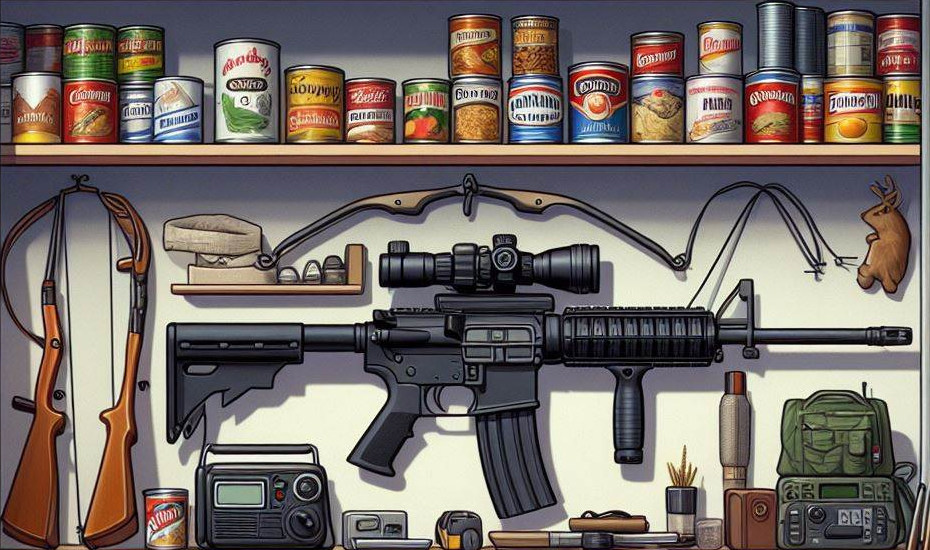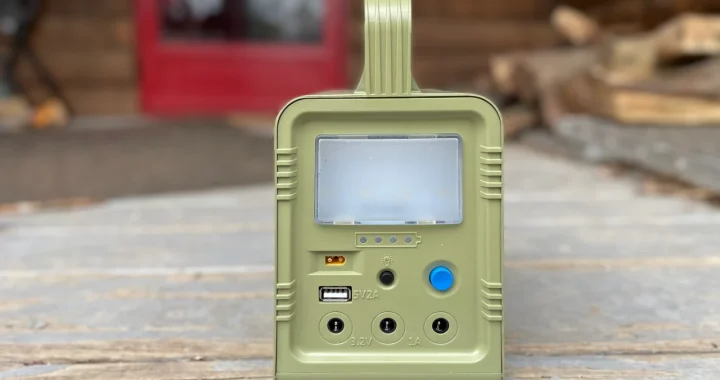Prepping for Beginners. How to Start Prepping.

Welcome to the world of prepping, where readiness and resilience are the keys to navigating uncertain times with confidence and security. Whether you’re preparing for natural disasters, economic instability, or unexpected emergencies, embarking on the journey of prepping is a proactive step towards safeguarding yourself, your loved ones, and your community.
This prepping for beginners guide aims to equip beginners with a starting point to obtaining essential knowledge, practical tips, and provides actionable steps to start their prepping journey.
Table of Contents
Understanding the Importance of Prepping
Prepping, short for “preparedness,” refers to the proactive practice of anticipating and planning for potential emergencies or disruptions to daily life. It involves acquiring the necessary skills, knowledge, and resources to effectively respond to and cope with various threats, ranging from natural disasters like hurricanes and earthquakes to societal upheavals such as economic downturns or pandemics. Prepping is not about living in fear but rather about empowering oneself to face adversity with resilience and confidence.
Reasons for Prepping
- Knowing that you are prepared for emergencies provides a sense of security and peace of mind, reducing anxiety and stress associated with uncertainty.
- Prepping encourages resource conservation and responsible consumption habits, reducing waste and promoting sustainability.
- Developing prepping skills and knowledge enhances adaptability and self-reliance, empowering individuals to navigate challenges independently and creatively.
- Prepping for health emergencies involves maintaining a healthy lifestyle, practicing good hygiene, and accessing essential medical supplies, contributing to overall health and well-being.
Prepping is not just about stockpiling supplies; it’s about cultivating a mindset of readiness and resilience that empowers individuals to face adversity with confidence and adaptability.
Assessing Your Risks and Needs
A fundamental step towards ensuring the safety and well-being of oneself and loved ones is be making a comprehensive assessment of risks and needs. Central to this process is the identification of potential threats, ranging from natural disasters to societal upheavals, enabling individuals to anticipate and mitigate potential dangers.
Some of the most critical aspects of assessing risk is evaluating personal risks, considering factors such as health conditions, geographic location, local crime and population, and socio-economic status. Additionally, determining basic needs for oneself and family forms a foundation for preparedness planning, encompassing essentials such as food, water, shelter, and medical supplies.
By assessing these aspects, preppers can proactively strategize, train, equip and prepare themselves to navigate uncertain circumstances with resilience and foresight.
Some things to consider when assessing risk:
- Compile Medical Information for yourself and your family
- Consider Accessibility Needs
- Evaluate Dietary Restrictions
- Plan for Pets
- Consider Extreme Weather Geographically
- Consider Population and crime statistics of where you live
- Are you able to grow your own food?
- Assess your physical fitness
- Assess your living area and space availability.
- How far away are you from emergency services like fire and police?
These are all things to think about when developing a risk assessment. This will set a mindset for determining where you might begin prepping and what to prioritize in your preparedness plan.
Creating Your Prepping Plan
Creating a prepping plan is a process that involves careful consideration of various factors to ensure readiness. Establishing priorities is the cornerstone of creating a preparedness plan, as it enables the prepper to identify and address their most pressing needs first. Whether it’s ensuring access to food and water, fortifying shelter, or acquiring essential supplies, prioritization ensures that resources are allocated efficiently.
Set realistic goals!
Prepping for beginners can feel overwhelming, but it’s essential to approach it with patience and practicality. Starting small is key; focus on building up supplies of non-perishable food items, water, and basic medical supplies gradually
Setting realistic goals is crucial as it provides a roadmap for achieving preparedness without overwhelming yourself. By breaking down larger objectives into smaller, achievable milestones, preppers can track their progress and stay motivated.
Creating a to-do list is a practical strategy to translate priorities and goals into actionable steps. This involves identifying specific tasks, such as inventorying supplies, developing emergency plans, and acquiring necessary skills, and organizing them into a structured timeline.
Regular review and adjustment of your prepping plan are essential to adapt to changing circumstances and ensure ongoing preparedness. Ultimately, a well-crafted prepping plan empowers individuals to navigate uncertain times with confidence and resilience.
Prepper Check List
A prepper check list is a good way to develop and outline for your prepping plan. A check list can be used to easily identify areas of your plan to fortify and prioritize.
Here is an example prepper check list that you can use as a template to help you get started. You will need to adjust this list based on you and your family’s own needs. This list is not a complete list and is meant to act as a starting point to help beginner preppers get started.
Water
- Bottled Water
- 30 gallon Water Storage Tanks per person
- Gravity fed water filtration
- Spring & Rivers
- Cisterns
- Backup power for well pump
- Rain collection for gardens and drinking
Shelter
- Cleaned Gutters & Water control
- Storm Windows & Backup Heating Solution
- Generator Setup
- Solar Power Setup
- Wood Stove & Firewood
Food
- Canned soups and stews
- Emergency Food Rations (MREs)
- High Fenced Garden
- Chickens, Sheep and other livestock
- Fencing for livestock
- Chicken Coop(s)
Security
- Gate and fence around home
- Motion sensor flood lights
- Firearms and Physical Fitness Training
- Guard or Alert Dog
- Paintball Gun with pepper balls
- Pepper and CS Spray
Medical
- Personal Tourniquets and First Aid Kits
- Antibiotics, NSAIDs, Gauss, Alcohol Wipes, Peroxide
- Splints
- Trauma Kits
Tribe
- Family & Friends
- Local Preparedness Group
- Online Community
Step-by-Step Getting Started With Prepping
What is the first thing a prepper should do?
As a beginner prepper you will want to focus on two weeks of food wand water, an alternative cooking source and a backup power source.
For those of you who need some guidance on exactly what to do first, here is a step-by step guide to get you going. Once you start prepping you will start getting ideas on what you need to do.



1. Create a plan with short term goals and a long term vision. My personal long term vision is to be completely self sufficient. Your vision could be something else, perhaps preparing for something more specific or a specific event.
2. Secure your home and learn to defend yourself.
3. Get two weeks of food and water and work up to 3 months. Survival foods kits are a great way to get started or you can simply crab extra bottled water and canned goods when you are at the store. Check out my survival food planning article here.
4. Get a back-up heating and cooking source.
5. Get healthy and eat real food.
6. Find people to prepare with.
7. Collect rain water and start a potato garden.
8. Raise chickens for eggs and meat.
9. Implement a back-up power source.
10. Start learning how to learn.
Conclusion
Remember, prepping is not just about amassing supplies, but also about cultivating a mindset of readiness and resilience. It’s about learning and becoming a “jack of all trades” and learning how to adapt to your surroundings.
By prioritizing needs, setting realistic goals, and formulating a structured plan, beginner preppers can navigate the complexities of preparedness with confidence. It’s essential to start small, educate oneself on survival skills, and engage with communities for support and guidance.
Prepping is a continuous process of learning and adaptation, empowering individuals to face uncertainties with resourcefulness and determination. With dedication and perseverance, beginners can lay a strong foundation for their preparedness endeavors, ensuring they are better equipped to handle whatever challenges the future may hold.






